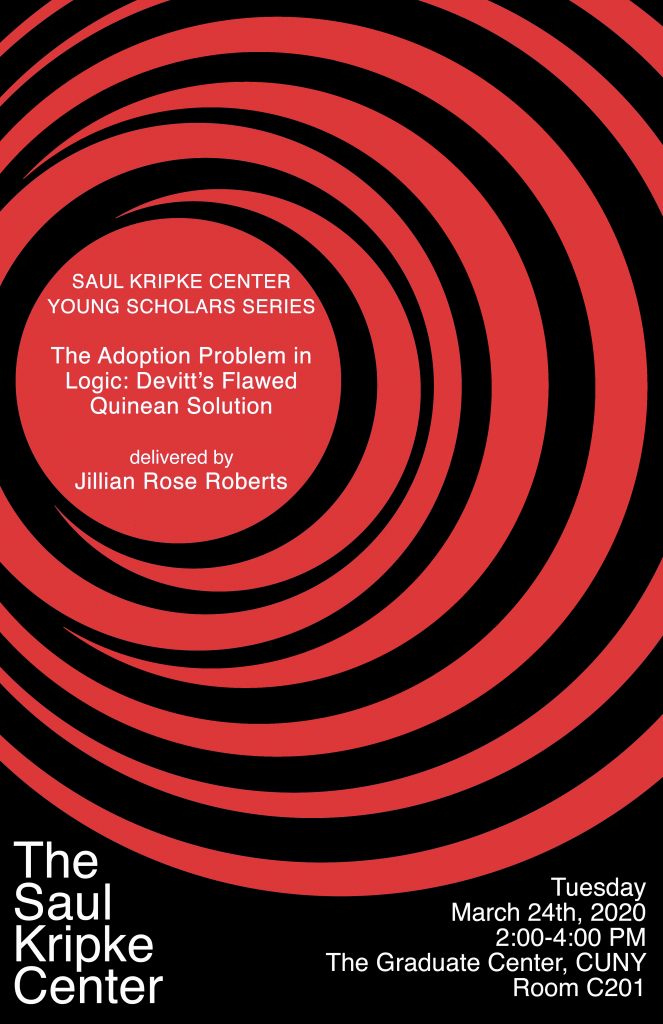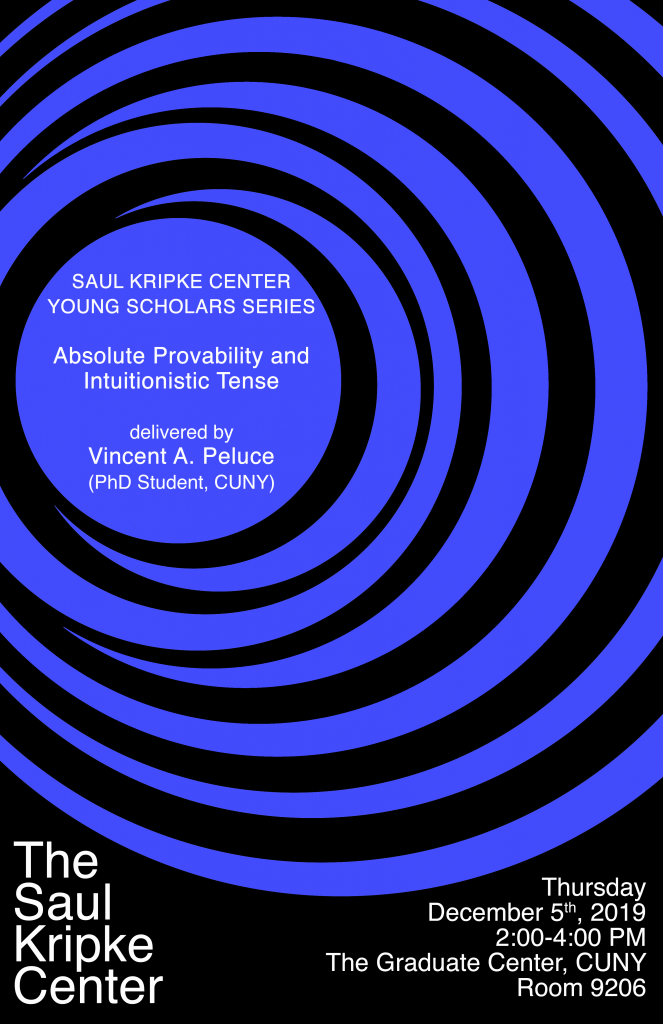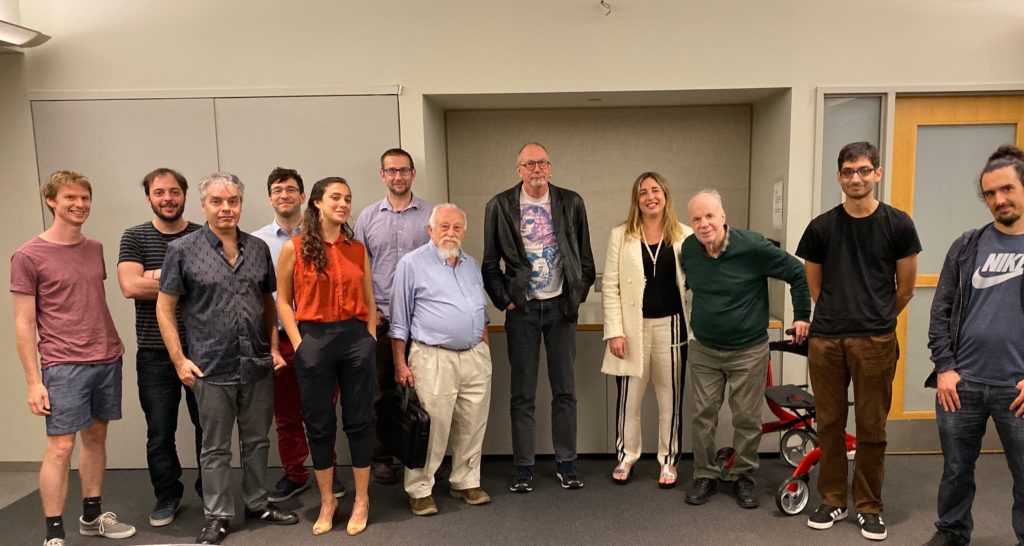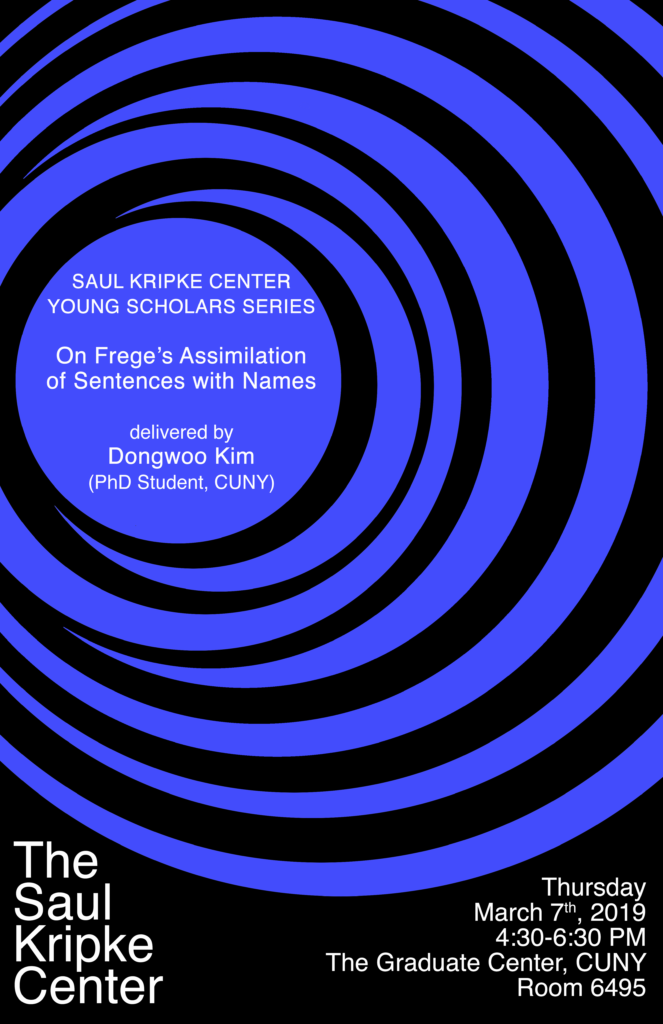The Saul Kripke Center is pleased to announce that James Shaw (Associate Professor, Philosophy, University of Pittsburgh) will deliver a talk for the Saul Kripke Center on Tuesday, March 31, 2020, from 2:00 to 4:00 in room 9207 of the CUNY Graduate Center.
This event has been cancelled. It may be rescheduled contingent on public health developments.
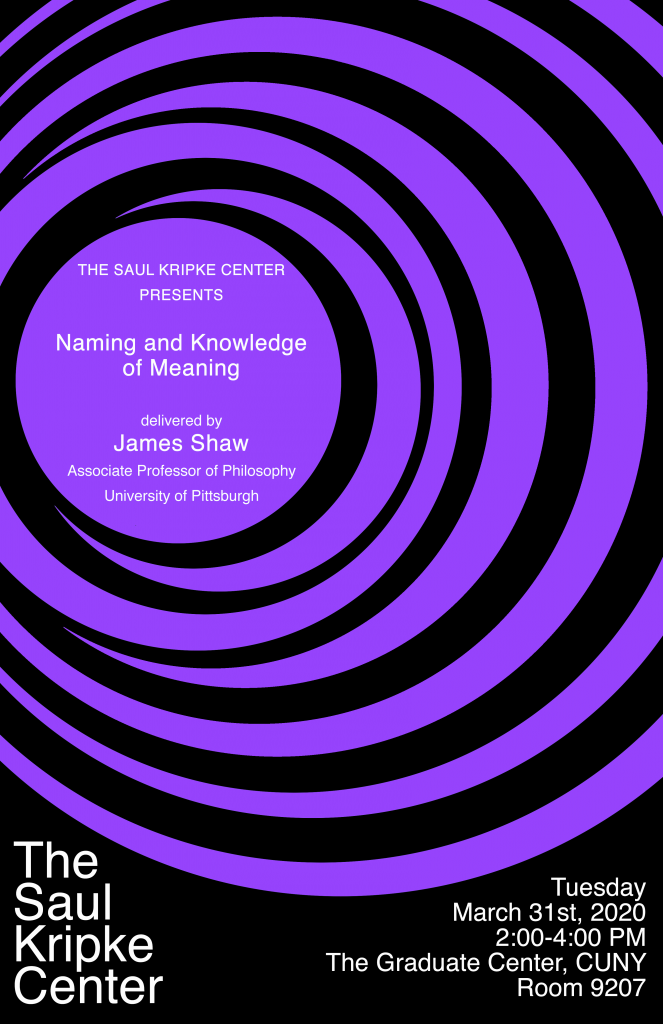
Title: Naming and Knowledge of Meaning
Abstract: What does it take to know the meaning of a word? Early analytic philosophers gravitated towards views on which meanings are ‘transparent’: if someone knows the meanings of two words, they are in a position to know whether those words mean the same or not. I note that a shift away from the standard of transparency in the analytic tradition seems to coincide with the advent of theories of direct reference. Then, focusing on the impact of Kripke’s work on names, I suggest that perhaps the shift was unwarranted. I first note that there are resources in Naming and Necessity that can be used to support certain semantic transparency principles. Then, partly drawing on themes from the work of Gareth Evans, I try to remove two of the more salient obstacles for such principles. I conclude by discussing some implications that reverting to transparency would have for Kripke’s arguments for the existence of necessary a posteriori truths.


